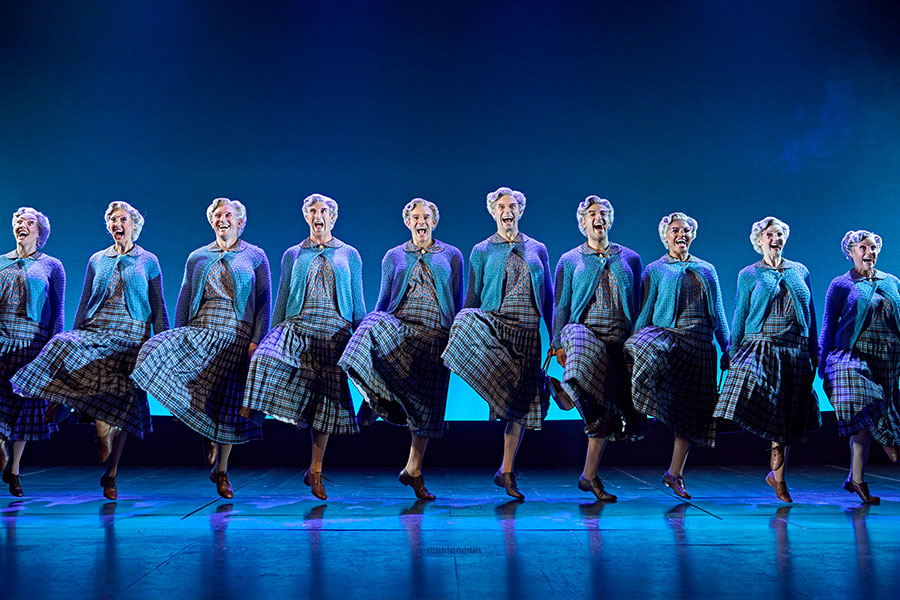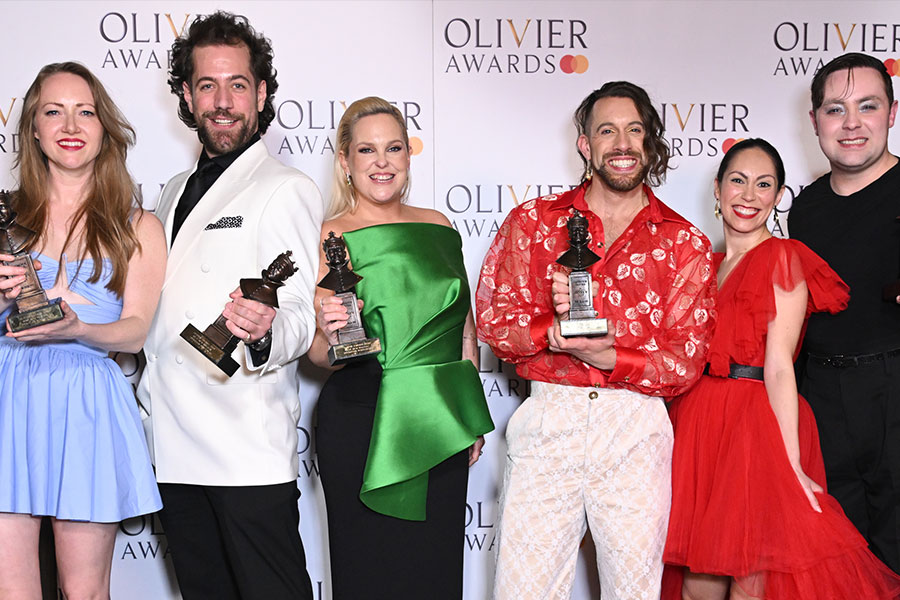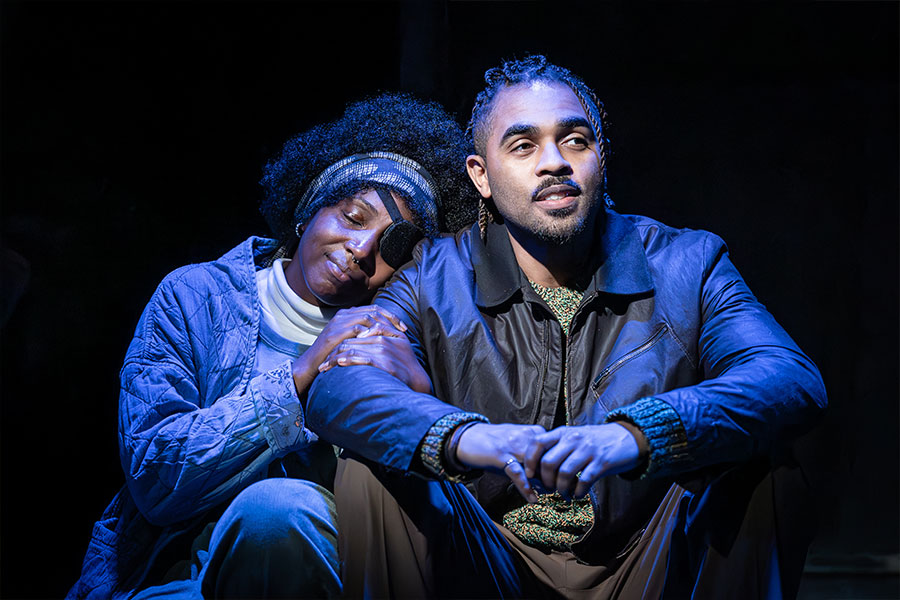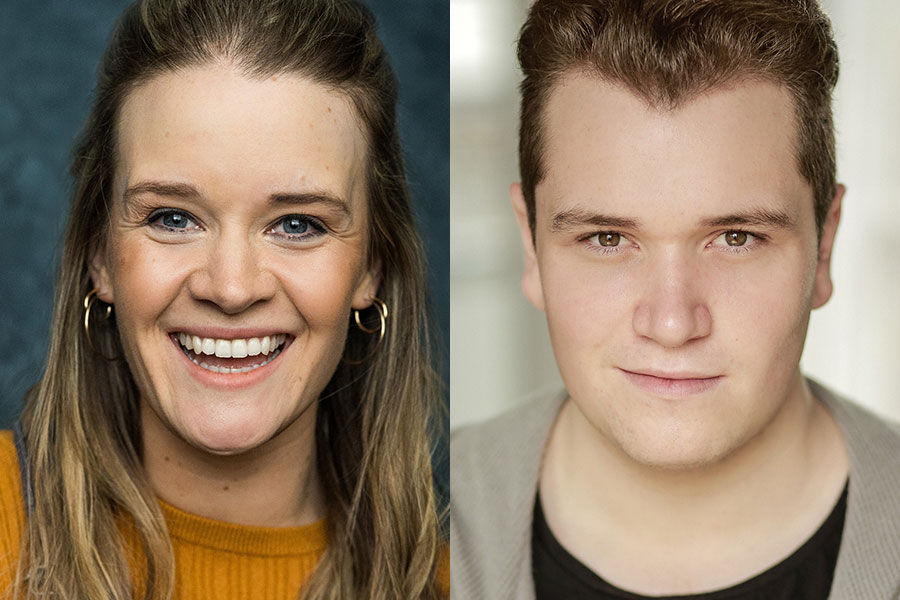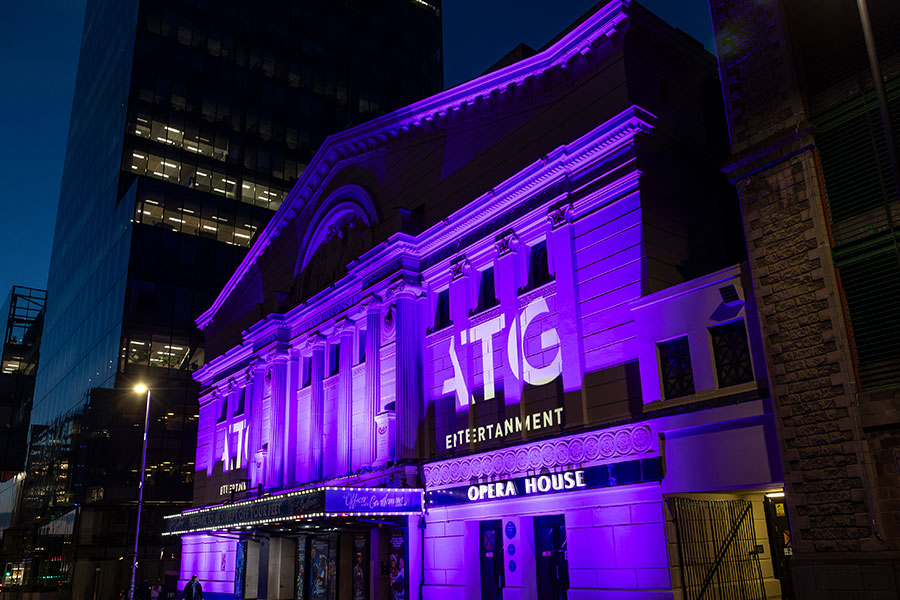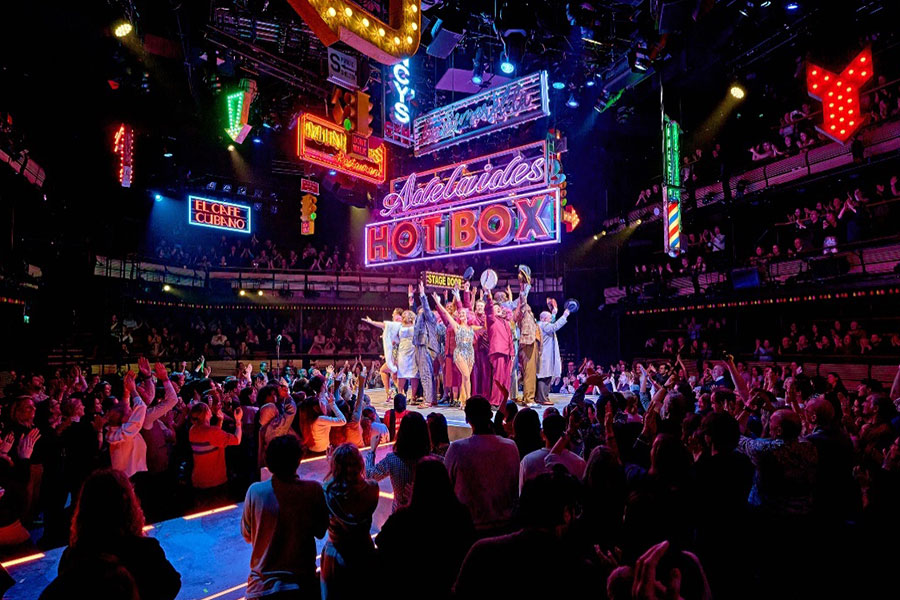Review Round-up: Gatz runs the gamut
Elevator Repair Service’s Gatz is an epic eight-hour production with a
cast of 13 who read the entire novel word-for-word. It opened at the Noel Coward Theatre yesterday (13 June 2012, previews from 8 June) as part
of this year’s LIFT festival.
Scott Shepherd is joined in the cast by Jim Fletcher, Susie Sokol, Kate Scelsa and Victoria Vazquez. Directed by John Collins, it runs at the Noel Coward Theatre until 15 July.
Michael Coveney
Whatsonstage.com
★★
“ … The stage is deliberately under-energised, as if to place Fitzgerald’s silvery, glistening prose in ironic relief. But the effect is the opposite. The enervating tedium of the office set-up is disastrously contagious, and the acting dull, with Manhattan street sounds mingling with jazz age party noise and screeching car tyres on a soundtrack operated in full view by one of the actors at the side of the stage. The skill of great theatrical adaptations of novels – David Edgar’s of Nicholas Nickleby, Shared Experience’s A Passage to India, or even Les Misérables – is to make you feel that nothing has been left out … apart from the controlling voice of the narrating author. And here, that’s the part you often wish had been omitted. While you see the point of not having Robert Redford and Mia Farrow on the stage, boy do you long for them by the end … There’s no clinching dramatic statement of how the enigmatic boss in the contemporary office relates to his alter ago, Gatsby, and the framing stage metaphor is simply abandoned in the rhapsodic adieus of the last pages. And what could have been a surprise masterstroke, the appearance of Jay’s father at the end, is merely a crushing let-down, hide-bound by textual fidelity and very poor acting.”
Libby Purves
The Times
★★★
“Its kingpin is Scott Shepherd who, in a remarkable turn of memory and stamina, plays a bored office worker who, between desultory clicks of his space bar picks up the book and identifies ever more deeply with the narrator. At first he mutters, low-key, doing all the voices, but gradually colleagues pass by and are drawn in as characters, wittily manipulating workaday objects and speaking the book’s lines – complete with ‘he said, she said’. Lucy Taylor becomes Daisy, and Susie Sokol (apparently a grade-school teacher, bet she’s fun there) is physically vivid as the cheating golf champion Jordan. Gatsby himself, Jim Fletcher, is equally impressive: facially as unreadable as an Easter Island statue, deep-voiced, fraudulently portentous, finally vulnerable. By the second segment he grows, and his highly charged passages with Daisy and her thug husband are done with immense feeling, so that the setting and artificiality fade for a time, almost forgotten. So is it worth half your waking hours, including intervals? Maybe. To the stalls aficionado, connoisseur of perverse theatrical oddity and low-tech inventiveness, this off-Broadway cult hit is a box to tick. There’s nothing else quite like it.”
David Cote
Time Out
★★★★★
“This eight-hour-plus immersion – in which 13 actors read aloud every blessed word of F Scott Fitzgerald’s The Great Gatsby – is thoroughly aural, even musical. And yet, the production acts upon the eye, through a meticulously layered physical score buzzing around Scott Shepherd, our intensely listenable narrator. Shepherd reads beautifully; we watch him read; we listen; we imagine that we read along with him; and so Fitzgerald’s images are burned into our brains by an indirect circuit of seeing and hearing on intermeshed levels. After eight hours of this, our narrative-absorbing faculties have been so recalibrated that we forget where ERS’s frame ends and Fitzgerald’s picture begins … Fletcher doesn’t really resemble the dashing, handsome playboy Jay Gatsby as we may cast him in our minds. That’s as it should be: Gatz is constantly opening up a space between Fitzgerald’s writing and the real life we see before us, in all its silliness, randomness and banality. The book offers escape, a new self, vicarious thrills.”
Dominic Cavendish
Daily Telegraph
★★★★
“The company comes to excavate The Great Gatsby not to bury it in pretension. Their version has considerable wit, a consequence of Fitzgerald’s epigrammatic style and the constantly inventive input of director John Collins and his cast. It glories in the power of theatre, as Coward did. And it also seems custom-built to withstand – and win over – the coolest English scepticism … This remarkable event more than repays the bum-numbing commitment. It’s not just that every passage gets a light shone on it, allowing us to savour the detail – but that the whole is much greater than the sum of its parts. The first half attains a wild gaiety – without frills, the ensemble evokes ample thrills in put-on drunkenness and showers of jettisoned office-papers. But as the evening darkens with unhappiness, the potency of the show’s double-life takes hold. ‘The party’s over’ is the final forlorn message, brought home by Shepherd, the lone lead, brilliantly intoning Fitzgerald’s words by rote. In these straitened times, using the barest of means, that sentiment couldn’t feel more bang-on-the-money.”
Michael Billington
Guardian
★★★★
“… Spanning eight hours, it preserves the haunting rhythms of Fitzgerald’s prose and sustains his narrative dynamic. It’s not flawless but it’s memorable … What is extraordinary about the company’s approach is their ability to evoke, through the simplest means, the book’s memorable scenes. At one point, Buchanan, who epitomises a devouring materialism, whisks his mistress and the narrator, Nick, off to an impromptu Sunday afternoon party: an atmosphere of drink, debauchery and violence is created through something as simple as the office-stationery being strewn wildly about the place … Even as skilful a realisation of the novel as this creates occasional problems. For all the brilliance of Jim Fletcher‘s embodiment of the self-created Gatsby, the mere act of impersonation robs him of some of the elusiveness that makes him a great fictional character. The mock-Homeric recitation of the list of his party guests is also obscured by an overlay of jazz music. But the central idea of the book still emerges with great clarity … A great American classic has been captured with total, transfixing fidelity by this dedicated ensemble.”
Henry Hitchings
Evening Standard
★★★★
“An eight-hour stage version of The Great Gatsby doesn’t immediately sound like a winner. You could read F. Scott Fitzgerald’s 1925 novel twice in that time (which includes a long break and two short ones). But American theatre company Elevator Repair Service has created something remarkable, a lyrical marathon … John Collins’ production is technically impressive. Designer Louisa Thompson has crafted a strikingly dismal office space, and Ben Williams provides brilliantly nuanced sound. There’s deft support as well, with Robert Cucuzza and Susie Sokol making the strongest impression … The performance gets off to a very slow start, and there are passages that feel a little flat. This isn’t theatre for the faint of heart or weak of spine. But it is an epic achievement – and a tribute to the greatness of Fitzgerald’s novel.”
Paul Taylor
★★★
“Jim Fletcher who plays Jim, the middle-management type who eventually portrays the titular tycoon, claims this novel is ‘kind of like what they say about Afghanistan – nobody has ever invaded it or reoccupied it’. I am not sure the breakthrough solution lies in what happens here. Fitzgerald’s subtle ambivalence is, for the most part, crudely divided between relentless slapstick and Nick the reader’s infatuation with the novel. It is paradoxical that this extravagantly over-hyped show becomes genuinely moving only towards the end when Nick jettisons the book and speaks to us directly in defiant solidarity with the slaughtered Gatsby against the closing ranks of the callous rich. Before that, it can feel like a bit of an endurance test.”
– Julianna Fazio




